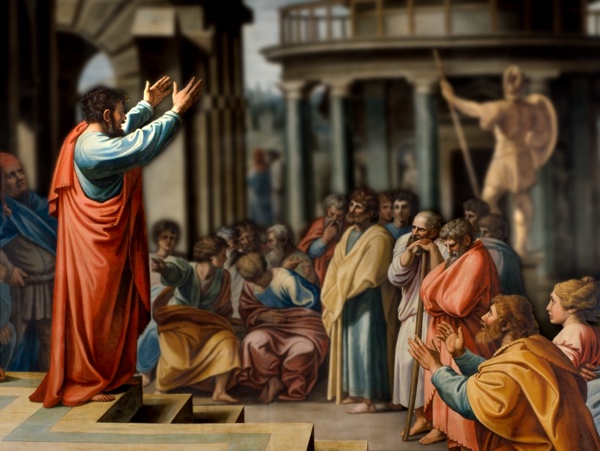
My book End of Story? Same-Sex Relationships and the Narratives of Evangelical Mission (2019) grew out of many conversations in a missional context about the problems and opportunities created by the widespread legalisation of same-sex marriage. It seems to me that the issue provides us with a powerful lens for reviewing the nature of Paul’s mission and for reimagining the function of the church, particularly in the post-Christian West.
This podcast looks at Paul’s critique of a Greek civilisation distinguished by the prominence given to certain forms of homosexual activity, and considers the implications of the fact that this critique belonged to a story that ended long ago.
A few more such podcasts here (nothing fancy) or on Podbean. If you’d rather read the transcript, you can find it here.
Honest question, Andrew: Is there then any enduring or universal sexual ethic? What can we say about sexual behavior (denoting behavior from orientation)?
@Rob Fairbanks:
We miss you too, Rob. It was Communitas online fun night tonight. Somethings never change! Scott pulled it off very well.
But enough of the fun….
Humanity is overwhelmingly heterosexual. We appear to have come to the conclusion in the modern era that homosexuality is not a disease or crime or perversion. But that doesn’t alter the basic reality of biological life, which is that the human species survives—is fruitful and multiplies—on the basis of sexual reproduction involving a male and a female. That might change in the remote future, if we get there; and then we’ll have to think again.
I don’t think that accepting the reality and naturalness of homosexual attraction interferes in any serious way with the creation mandate, especially if we allow that humanity was always meant to exist as kinship groups or communities rather than as nuclear families. In that context, incidentally, I think there is great value in same-sex attracted people pursuing celibacy.
So the ethical norm is that we are ordinarily heterosexual and exceptionally homosexual. That is clearly not a pure biblical position. It is a compromise or accommodation, recognising that we have to account for our behaviour on two levels—an ideal creational level and a contingent historical level.
Personally, I think that “faithfulness” is a central component of a sexual ethic on a similarly imperfect and compromised basis. We cannot do faithfulness perfectly, but we do our best to keep all sorts of relationships together for all sorts of reasons. Faithfulness in a same-se marriage seems to me to be a moral good.
Maybe the point is that ethics should be done by pastors and not by theologians. Ethics is about life, history, context, wisdom, judgment, trust, forgiveness, compassion, as much as it is about the application of moral absolutes. No?
BTW — I miss you, friend! I hope you and Belinda are well.
Recent comments